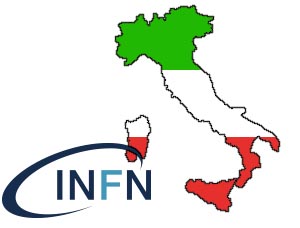INFN in Italy

The INFN has a significant impact on Italian society. Indeed, its activities have for decades selected, and continue to select, researchers and research managers of the highest quality. It is no coincidence that executives from the INFN have directed other important Italian research centres and are called upon to manage leading scientific facilities abroad, from Europe to the United States.
Another qualifying element is the training of young people: every year about a thousand undergraduates, doctoral students and scholarship holders take part in the INFN’s activities. A large percentage of physics graduates do their theses within the framework of the institute’s activities. The birth of the Gran Sasso Science Institute will also open up a school of higher education of an international nature.
There is also a positive impact on the Italian economy, due to the close collaboration that the INFN carries out with hi-tech companies, especially small and medium-sized enterprises (SMEs). And this both on national projects and, above all, on large international programmes. Particularly significant was, for example, the contribution that Italian companies made to the construction of the most technologically advanced components of the LHC particle accelerator at CERN in Geneva.
Also of great significance are the spin-offs on the medical and technological level in general of the technologies and know-how developed by the INFN to build its experiments. There are many examples: one of the most important is the development in Italy of technologies for treating tumours using protons and carbon ions (hadrontherapy). The INFN has accumulated more than ten years of direct experience in this field at its laboratories in Catania and has built the Hadrontherapy machine at the CNAO in Pavia. The INFN is also a national and international player in the dissemination of the GRID, the supercomputing network, and the development of its applications to other scientific disciplines, electronic commerce and culture. In addition, the institute is involved with its instruments in the analysis and study of cultural heritage and the environment.

